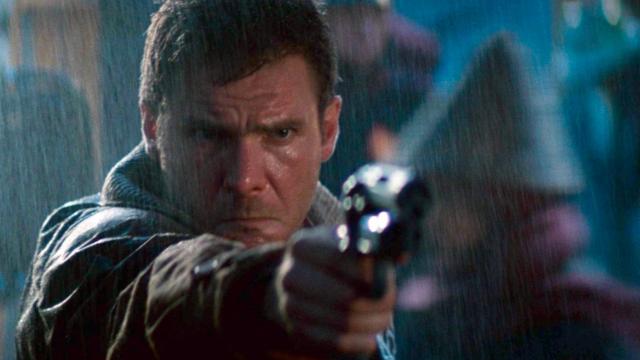All Images: Warner Bros.
Ridley Scott’s Blade Runner came out 35 years ago to mixed reviews, but these days most people consider it a scifi masterpiece. However, it’s also a film that occasionally happens to be a blind spot for some nerdy film fans. When we discovered we were employing not one, but two people who had never seen the film, we had to take steps to rectify the situation immediately.
The guilty parties are Beth Elderkin and Charles Pulliam-Moore, who we forced to watch Blade Runner last week. Then we asked them what they thought about Ridley Scott’s 1982 film after experiencing it for the first time in 2017. It’s wide-ranging conversation that touches upon the burden of three-plus decades of hype, unicorn dreams, Android phones, artificial intelligence, the Deckard/Replicant debate, and, of course, how they feel about the upcoming sequel now that they have finally seen the original.
Germain Lussier: Before we talk about what you both thought about Blade Runner, what were your expectations about the movie going into it?
Beth Elderkin: I figured I was going to love or hate the original Blade Runner. There’s a real polarization surrounding the film that seems to have only increased over time. It’s either genius or terribly overrated.
Charles Pulliam-Moore: To be perfectly honest, I didn’t think that I’d really care for Blade Runner all that much because it’s one of those movies that, as a person coming to it so late, I’d heard so much about from diehard fans. Blade Runner‘s one of those pop culture “must-watches” that I always ended up putting off because people love to bring it up and insist on telling you how seminal it is.
Beth: Yeah, Charles, I think the diehard fandom around the film turned me off more than anything else. It was like the bar of reaction had been set so high I had to play catch-up in order for my opinion about the film to be taken seriously.
Charles: Same! I’ve sat through my fair share of debates about which cut of the film is superior and I totally get how, for fans, that kind of back and forth is fun. But as an outsider it sort of cast the movie in a somewhat negative light. “Negative” is too harsh a word, but in my head, I always assumed that watching Blade Runner properly would mean going back, watching each version, and then coming up with some grand thesis about which Blade Runner is THE Blade Runner.
Beth: What cut did you watch?
Charles: The Final Cut.
Beth: Me too! I realised we didn’t actually talk about the different cuts ahead of time, but it’s interesting we chose the same one. People are so passionate about that part. Everyone I talked to about the movie had an opinion about what version to watch. In the end, I went with the Final Cut because no one talked to me about that one. I figured that made it more of a middle ground.
Charles: It was just the first one I saw in the store, haha. As a last point to your follow-up, Beth. I love the concept of Blade Runner being a living, breathing piece of art that’s grown and evolved over the past 35 years. But, again, when you bring it back to the fandom, it all just seems like w-o-r-k.
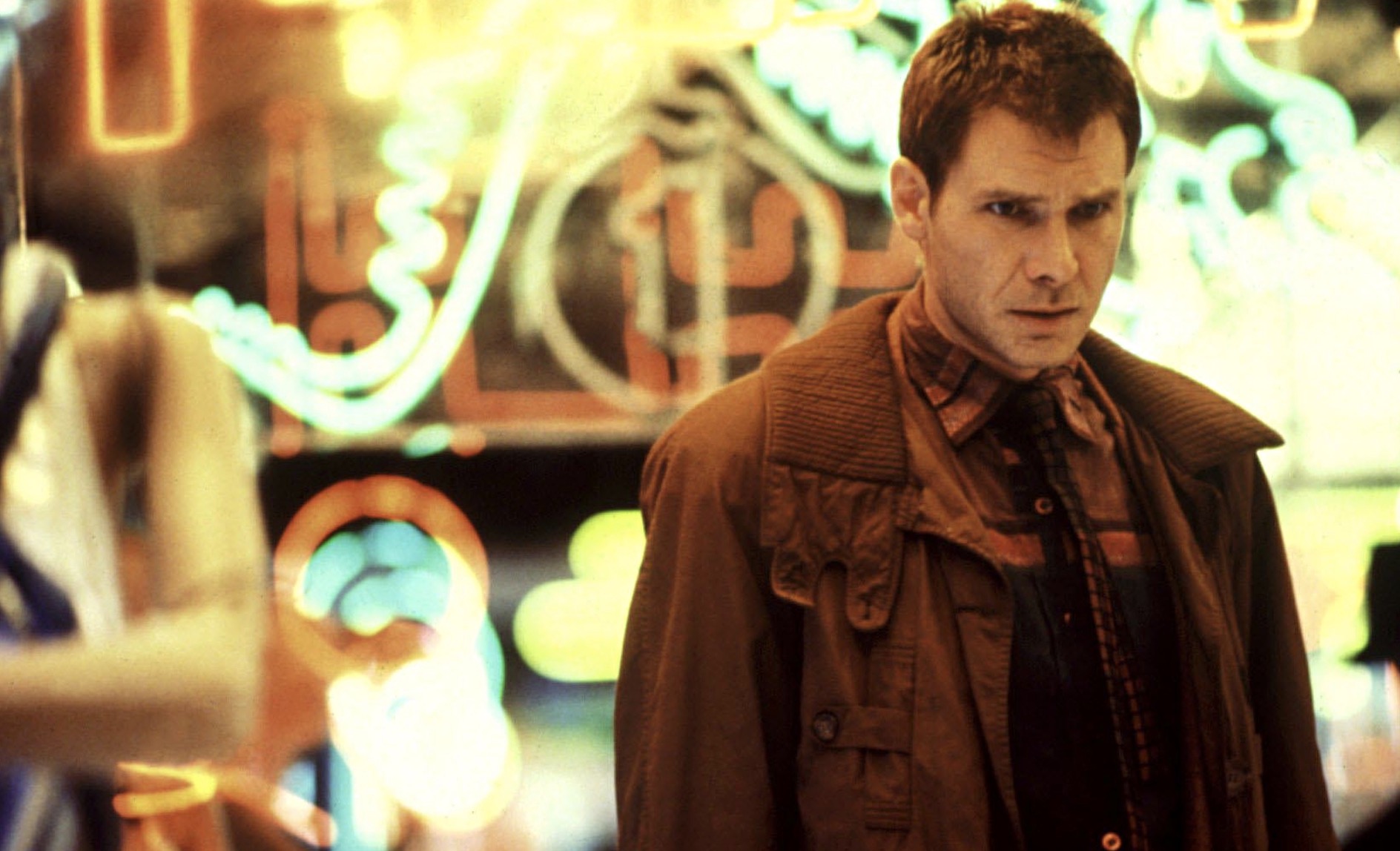
Germain: The Final Cut is kind of the culmination of all the different cuts, so it’s probably best you both watched that one. So, now that you’ve seen it what did you think? Did you like it? Was it overhyped? Lay it on me.
Beth: I enjoyed Blade Runner just fine, but more as a representation of works that followed rather than the movie itself. Perhaps that’s a little unfair to the film but, to be honest, it didn’t really grab me the way fans told me it would. I really loved the moments when I could look at the film and see exactly how it influenced later products — it was ahead of its time, and it shows. But as far as the film by itself, I was kind of bored.
Charles: It’s fine! Another one of the consequences of having waited to sit down and watch it properly is seeing just how much of an influence the movie’s had over subsequent scifi film and television, and having to remind myself that Blade Runner isn’t the iterative work.
Beth: There were elements I really admired about the film. I actually loved how small the stakes were. Hear me out: The conflict wasn’t a giant Westworld-style robot takeover, with piles of bodies strewn everywhere, but rather just a couple of Replicants wanting to live a few more years. In many other films or shows, this would be a side plot. But here, it’s given the time, attention, and space it deserves to explore their growth and internal conflicts.
Charles: There’s a dead, haziness to the movie’s aesthetic that might have been novel at the time, but it’s since become our visual shorthand for dystopia. I instinctively liked it because it was familiar, but that familiarity also annoyed me because, like I said, that’s the visual language we use to craft futuristic end times.
Beth: Charles, I cracked up when, during the only scene in the daytime in Tyrell’s tower, the first thing Deckard says is, “It’s too bright, draw the shades.” All night time all the time. Daytime doesn’t exist in dystopia.
Charles: No, no it does not.
Beth: The lighting really created a sense of tension, indicating that someone was always watching. And, combined with the pressing crowds that were always present in the action sequences, there’s this overwhelming uncomfortableness that makes you feel like you’re never alone. Then, by the time it’s just Deckard and Roy, it’s just the two of them. You end up feeling the weight of Roy’s words more because everything else has died away.
It’s a small thing, but I also loved the reflection in the eyes.
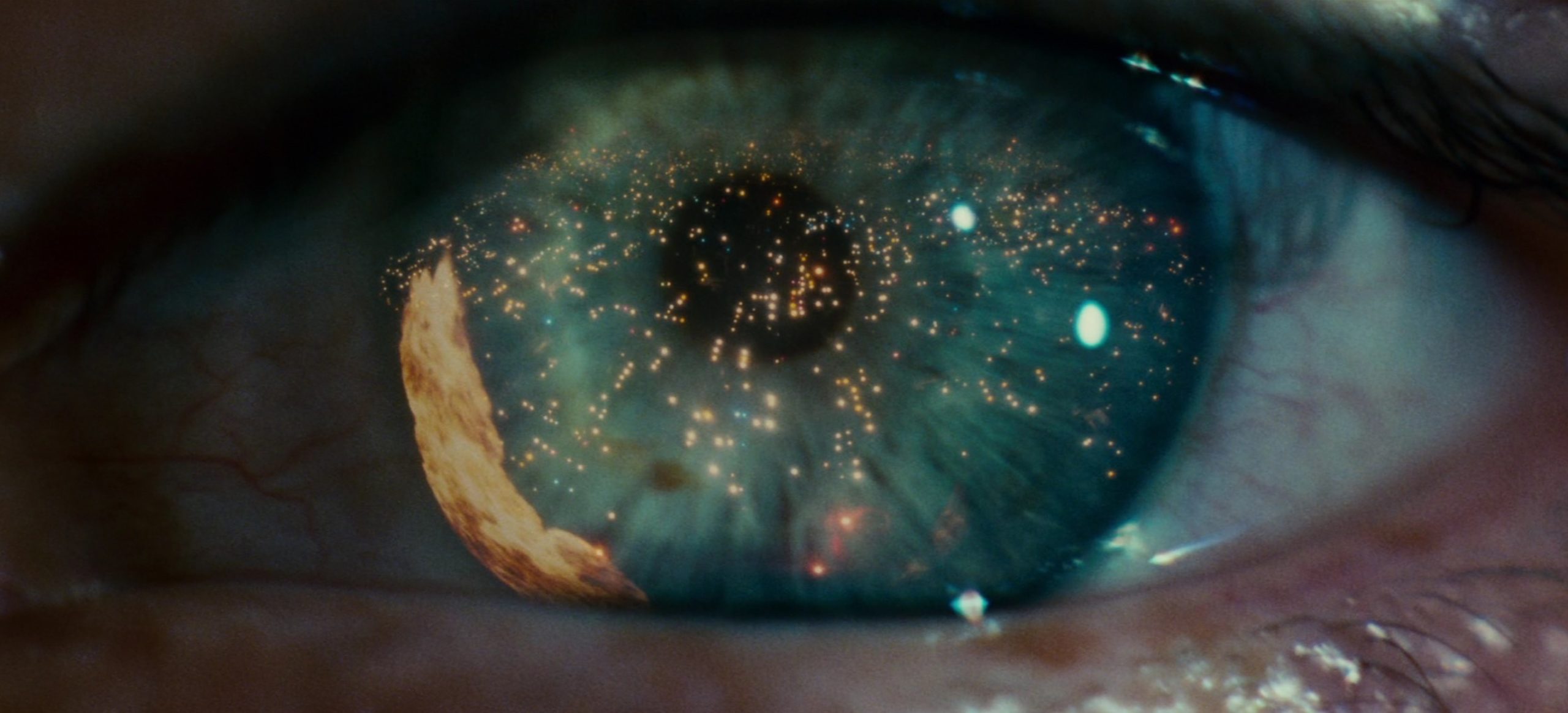
Charles: In Rachel’s?
Beth: And the owl’s. And, for a moment, Deckard’s. I saw Deckard have that reflection for just a moment, which I’m sure lent credence to the “Oh, he’s a Replicant too!” argument, which… maybe?
Was there anything else that caught your eye, Charles?
Charles: Hmm. Technically speaking it wasn’t really my eye, but I got a bit of a chuckle out of the Replicants being Nexus-6 models. (Said the recovering Android nerd.) I remember seeing this headline years ago and my eyes glazing over when I saw Blade Runner:
But that’s another example of the film casting this ridiculously long shadow.
Germain: Charles, Beth talked a bit about the story, but what did you think of the story? It seems like you both enjoyed the film aesthetically.
Charles: So one of the things that actually surprised me was how little time the movie spent having its human characters consider the Replicants’ humanity (or at least the idea of it), which is where a lot of fiction about androids and such tends to veer these days.
There’s a distinct inhumanity and stiffness to all of the Replicants that codes them as being non-human. It feels heavy-handed at first, but as the movie went on, I came around to the idea that Ridley Scott was intentionally trying to “other” them, you know? As if he was trying to force us to consider the innate humanness of the movie’s central plot about Deckard hunting them while they’re trying to extend their lifespans.
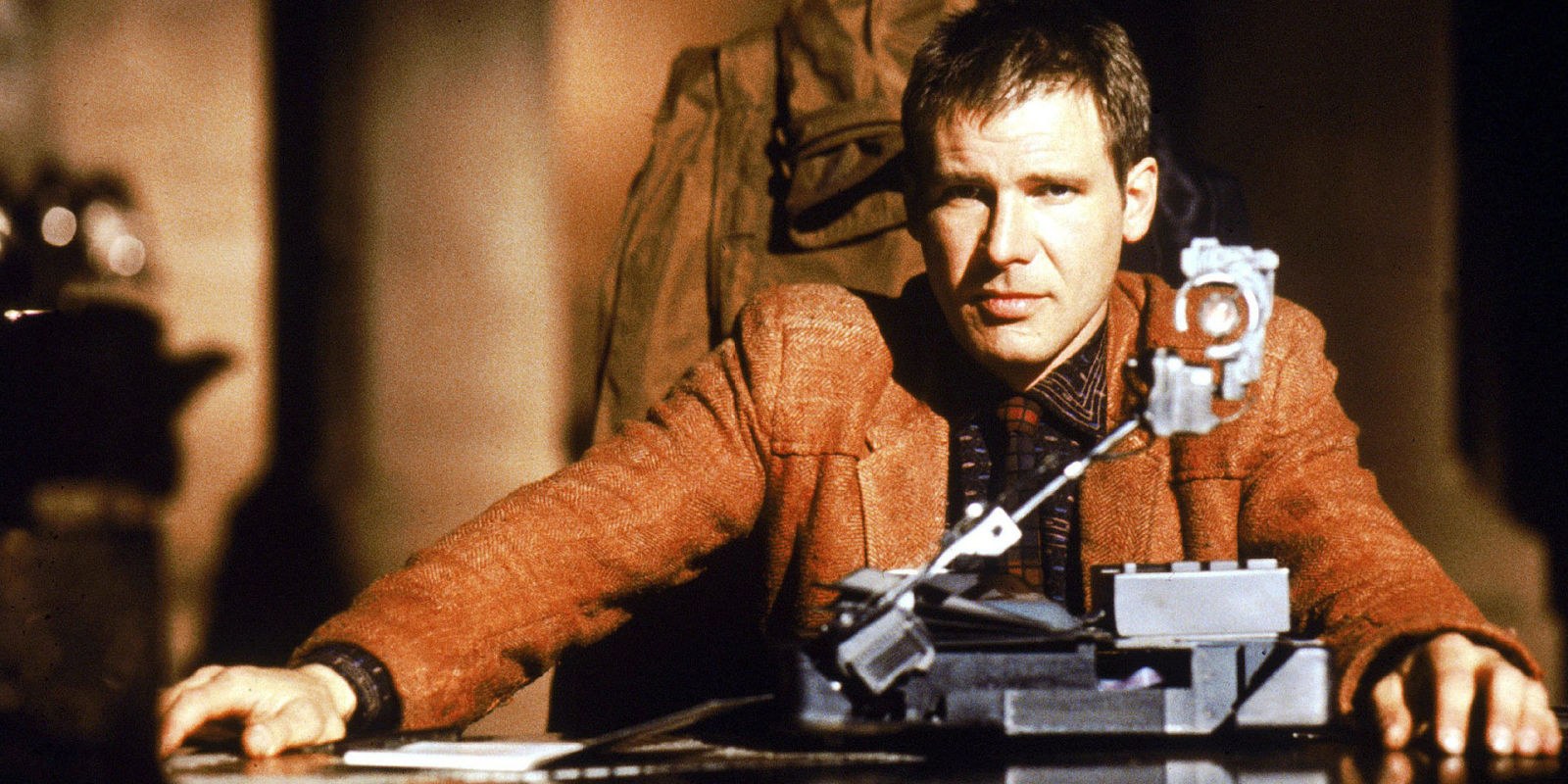
Beth: I did not care for the “Voight-Kampff” test, as I don’t feel like it’d be an accurate way to detect humanity.
Charles: SAME. The idea that people couldn’t pick Replicants out just by looking at them seemed like bullshit.
Beth: Couldn’t they just have a blood test or something? I mean they put barcodes on the scales of snakes, surely they can add one to skin flakes or blood cells.
Charles: Again, though, this is one of those things that subsequent things inspired by Blade Runner have taught us to consider.
Beth: I was curious what would happen if someone with sociopathy would take the exam. I mean, they’re not going to care about some damn turtle.
Charles: Speaking of sociopaths. Can we also talk about the performances? I’m of the strong opinion that they’re… not great.
Beth: Are we talking about Deckard? I’ve got thoughts about Deckard.
Deckard isn’t a very interesting protagonist. I feel like the “Deckard is a Replicant” argument kind of serves as a buffer to justify the fact that his character doesn’t really engage the audience, which is weird because Harrison Ford is a really charismatic actor. The only time he really emotes is when he sexually assaults Rachael, which… oh boy, let’s just not.
Charles: I meant more the cast as a whole.
Beth: I thought Roy and Rachel were great; everyone else was ok I guess. I don’t know what they did with Rachel’s voice, but she always sounded unearthly and disconnected from the scene, but in a way that made sense for the narrative.
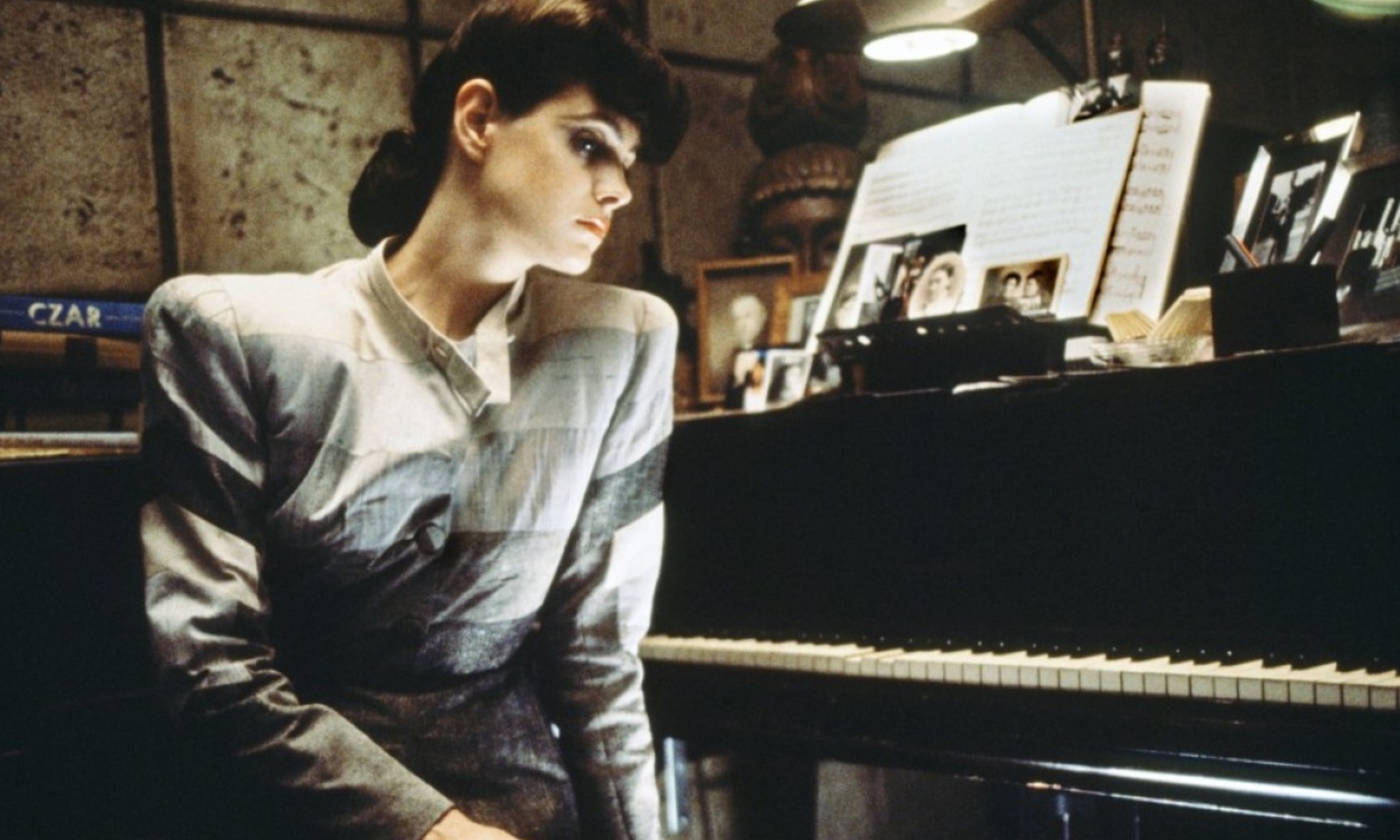
But as far as what I really didn’t care for, it comes down to pacing. The movie moves very strangely. It’s slow and yet not slow. I can’t quite put my finger on it. You can tell the movie’s been through multiple edits because the pace is very uneven, and there are obvious mistakes as a result.
Charles: There’s a distinct lack of charisma from most of the movie’s cast that I’m assuming is intentional, but it left me rolling my eyes because it gave the film a very distinct “thought experiment” vibe. That, as opposed to trying to feel like a world grounded in any sort of reality.
Beth: That’s a very film noir vibe.
Charles: But it’s things like that which make Blade Runner feel a little too self-serious for my tastes. You can hear the film and philosophy students off in the distance muttering to one another: “What does it MEAN to be human?” Spare me.
Beth: What were your thoughts on the toymaker? That whole scene with the toys was so jarring. Like, what was the purpose of him being surrounded by weird toys? To represent that he saw Replicants as toys? We didn’t really get an indication that’s how he felt in what he actually said and did. It felt like the set dressing was trying to create something that wasn’t supported by his words or actions.
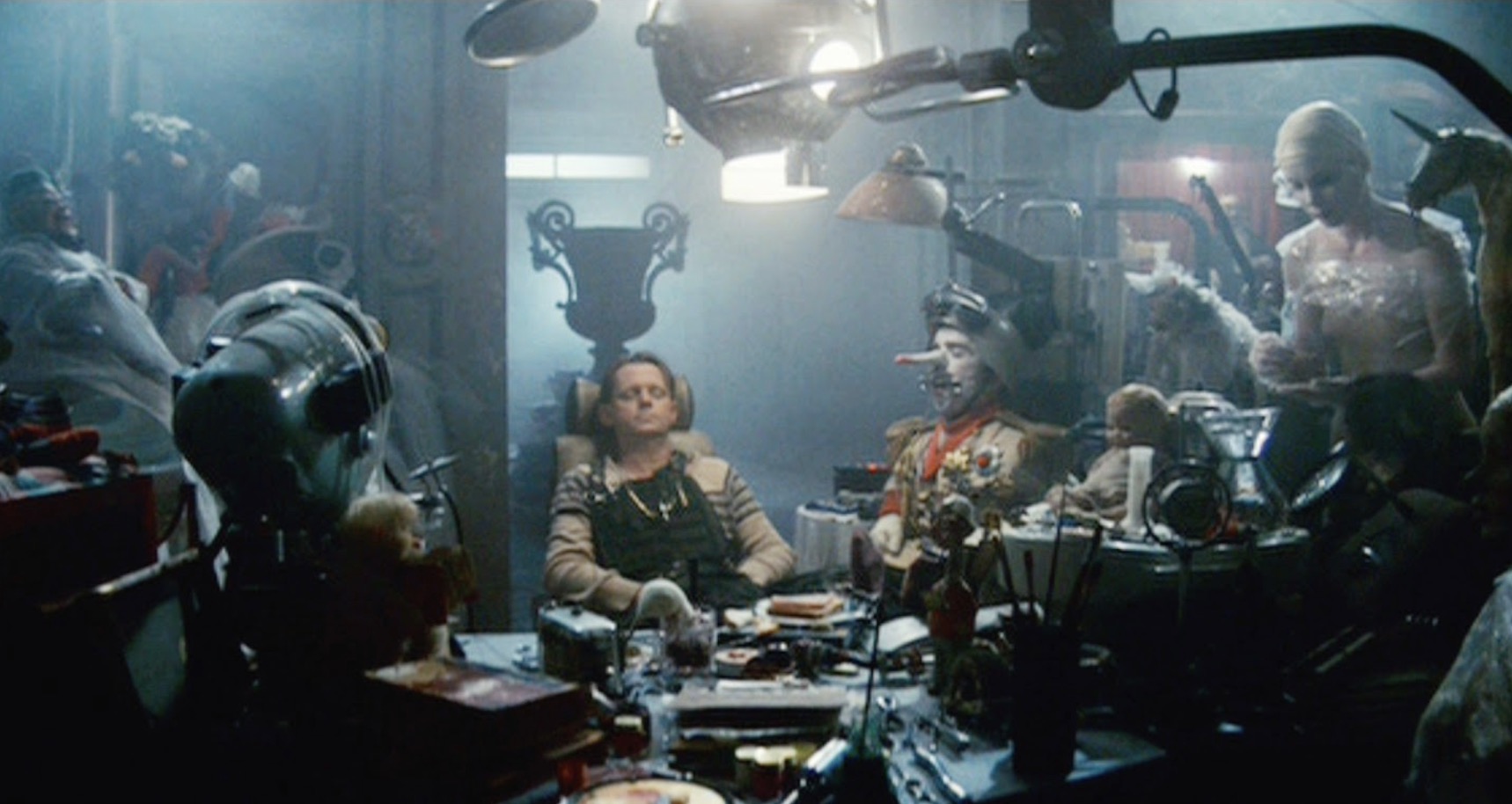
Charles: I’m gonna assume Ridley Scott’s a fan of the toymaker and was trying to construct a scene that was as creepy as it was pseudo-deep about the relationship between sentient beings and their creators.
Beth: I liked the character just fine, and was sad that he died. I didn’t like the way his character was framed by his environment.
To be honest, the only scene that truly matters to me is the final one between Deckard and Roy, just the two of them talking at the end of a man’s life. Everything else was a mixture of ok to pretty good to “Oh god get it away from me.”
Germain: We’ll get back to that but before we lose it, Beth, you mentioned the “Deckard is a Replicant” thing which, of course, is a huge pop culture debate. I’m wondering what you both thought of the debate itself beforehand, and where you come down on the debate now that you’ve seen the film.
Beth: If he’s a Replicant, how come he’s still alive in the sequel?
Charles: God, this makes me tired.
Beth: I didn’t really have an opinion about it beforehand because I wanted to let the narrative inform me and, in the end, I still don’t know. I mean, I’m leaning “Yes” mainly because I later read that Ridley Scott says he’s pro-Replicant, but I think the argument can be made either way. I do think Harrison Ford’s acting wasn’t that engaging and that fuelled the fervor.
Charles: Before having seen the film, the question didn’t really interest me all that much and it does less so now. Part of that’s because I never developed much of an attachment to Deckard, but it’s also because I don’t really think that it matters all that much to the story? Like, my experience of Blade Runner isn’t really changed either way.
Germain: Just so you know: The original cut of the film didn’t have the unicorn dream. He has the dream in the Final Cut (and Director’s Cut), and then Gaff leaves him an origami unicorn, suggesting Deckard’s memories are artificial, because Gaff seems to know about them.
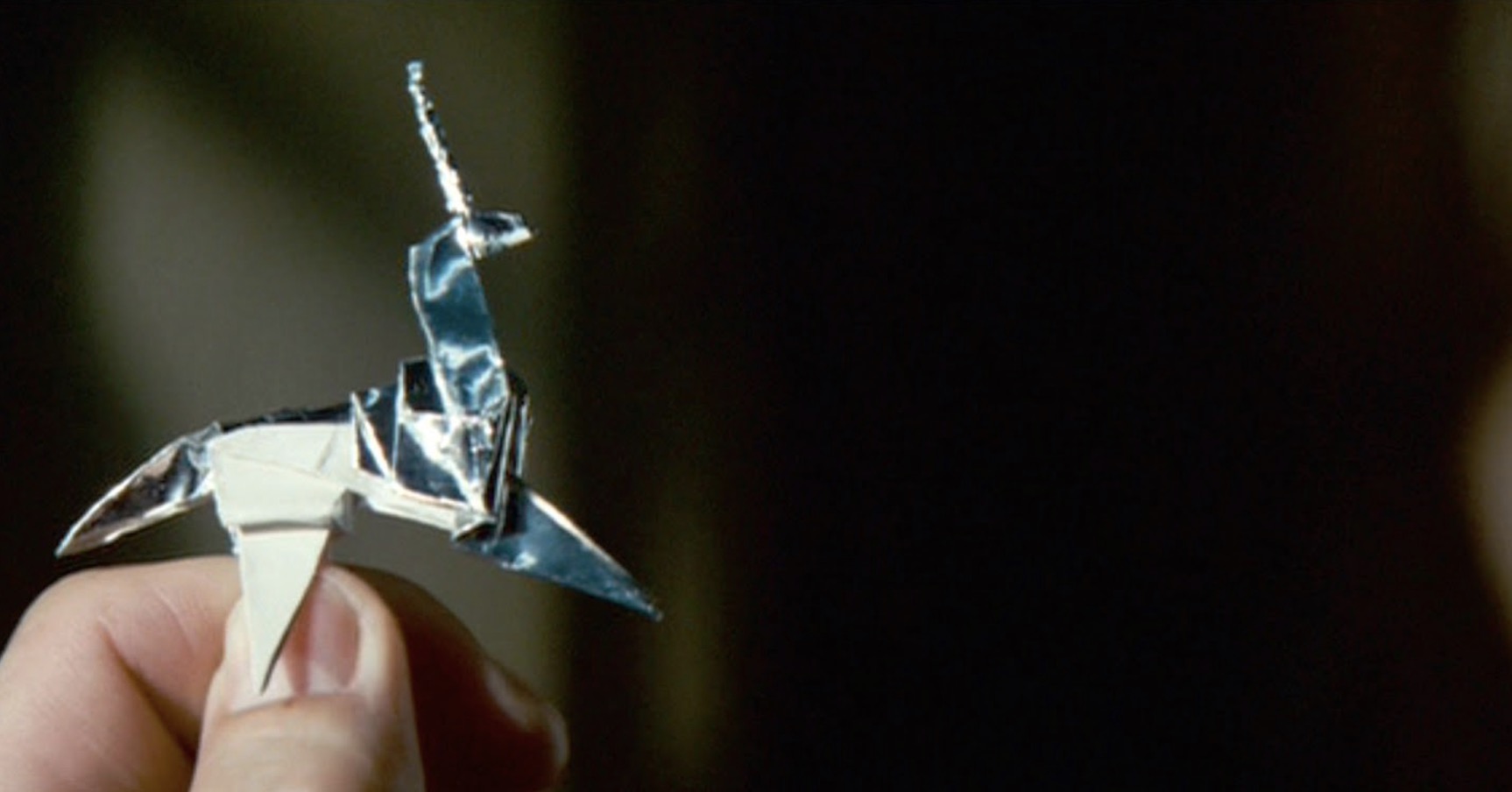
Charles: A question. Why couldn’t he just dream about unicorns?
Beth: Exactly! Unicorns are awesome.
Charles: Why does it have to be related to the origami unicorn?
Germain: Because it would be pretty coincidental that his colleague would guess that he has dreams about unicorns, right? This is why there’s no answer to the question… or is there? IN THEATRES FRIDAY.
Charles: And herein lies my beef with Blade Runner as a whole. Figuring out whether Deckard is actually a Replicant was the only reason I finally sat down and watched this movie and when everything had actually been laid out, the “raging debate” about it all made me roll my eyes. Because it all really boils down to whether or not two people happened to have unicorns on the brain. Which is cute and all, but come on.
Germain: That’s actually a nice transition back to the film itself. Beth said she enjoyed the Roy/Deckard stuff at the end. What did you guys get out of that? Or the film as a whole outside of its visuals, influence or mysteries?
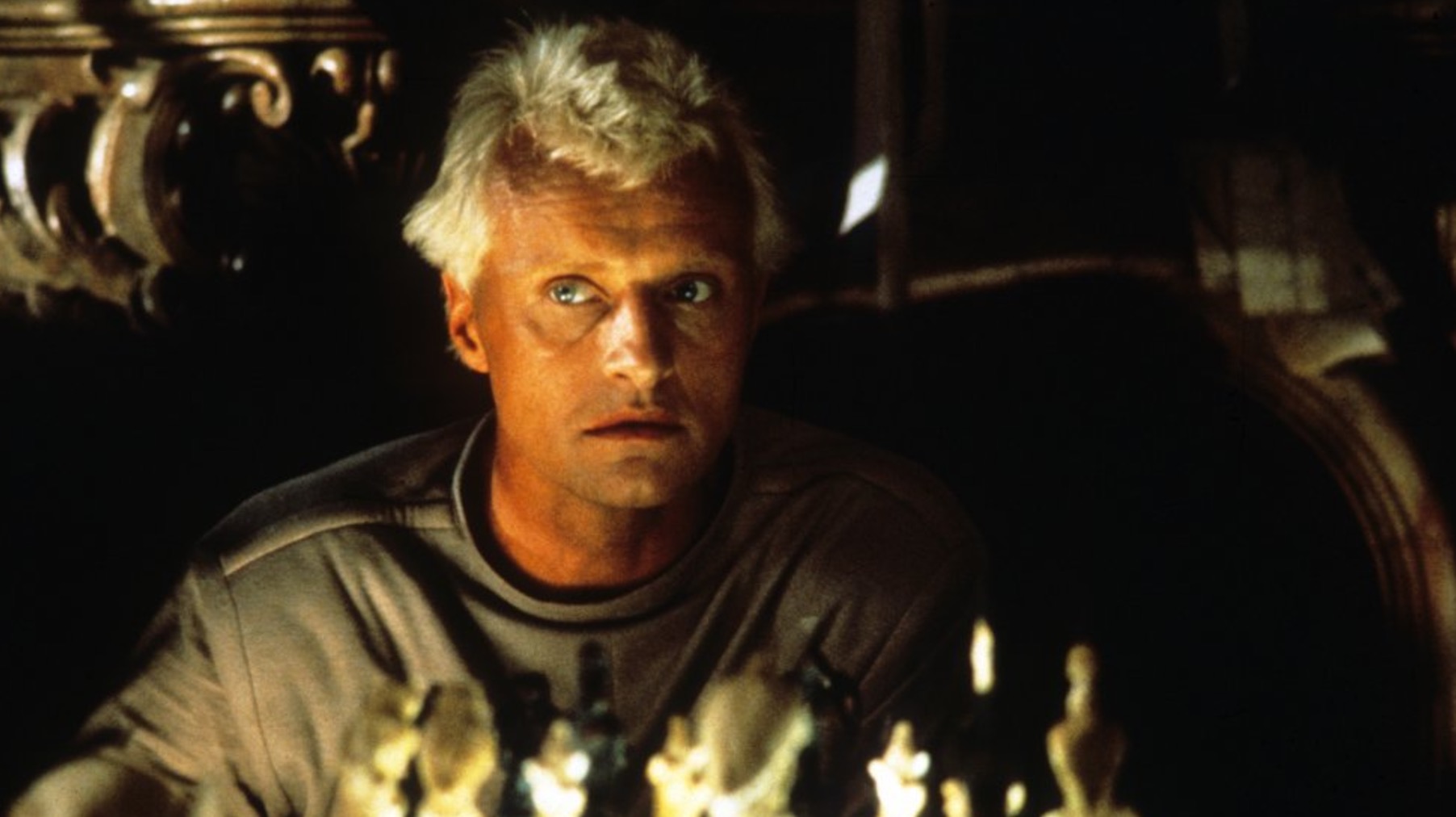
Beth: When I was in college, I took a course about artificial intelligence and the definition of humanity. (Yeah, I grew up in California, how could you tell?) It’s one of my passions — which, in hindsight, makes my not having seen Blade Runner pretty inexcusable.
I feel like Roy was the most interesting character in the film, and I actually enjoyed how they portrayed his journey. He was doing awful things, but for what he perceived to be the right reasons, and the movie doesn’t place a value judgment on his actions.
Was he human? No, the movie is clear in that he isn’t — at least not based on its (and our) interpretation. But the movie also seems to argue that humanity isn’t something we should limit to a single definition.
Charles: Hm. It’s funny. People put so much weight into that speech even though Rutger Hauer’s been very open about it not actually having all that much to do with the film or its messages. Which, in its way is kind of the perfect encapsulation of Blade Runner.
Beth: That’s interesting, and true.
Charles: It’s a bunch of high falutin’ concepts and ideas delivered beautifully, but they don’t mean anything until people project their own feelings onto it.
Beth: I actually like how the movie doesn’t push us to see the Replicants as good or evil, but something that’s simply “other.” As you mentioned before, Charles, there’s a tendency in Hollywood nowadays to make robots sympathetic, the good guys in a world that’s stacked against them. Before, they were evil Terminator robots. Blade Runner gives us a a creation inside a morally grey area and says “Make your own call.”
Charles: Personally, I think in that moment, Roy felt as if Deckard finally understood what it meant for the Replicants to be living in a constant state of fear that their lives were about to end. Because he himself was about to die, Roy took the opportunity to prove to Deckard that he was better at humanity than a supposed biological human was.
And that’s it? I dunno. I really struggled to gas this movie up.
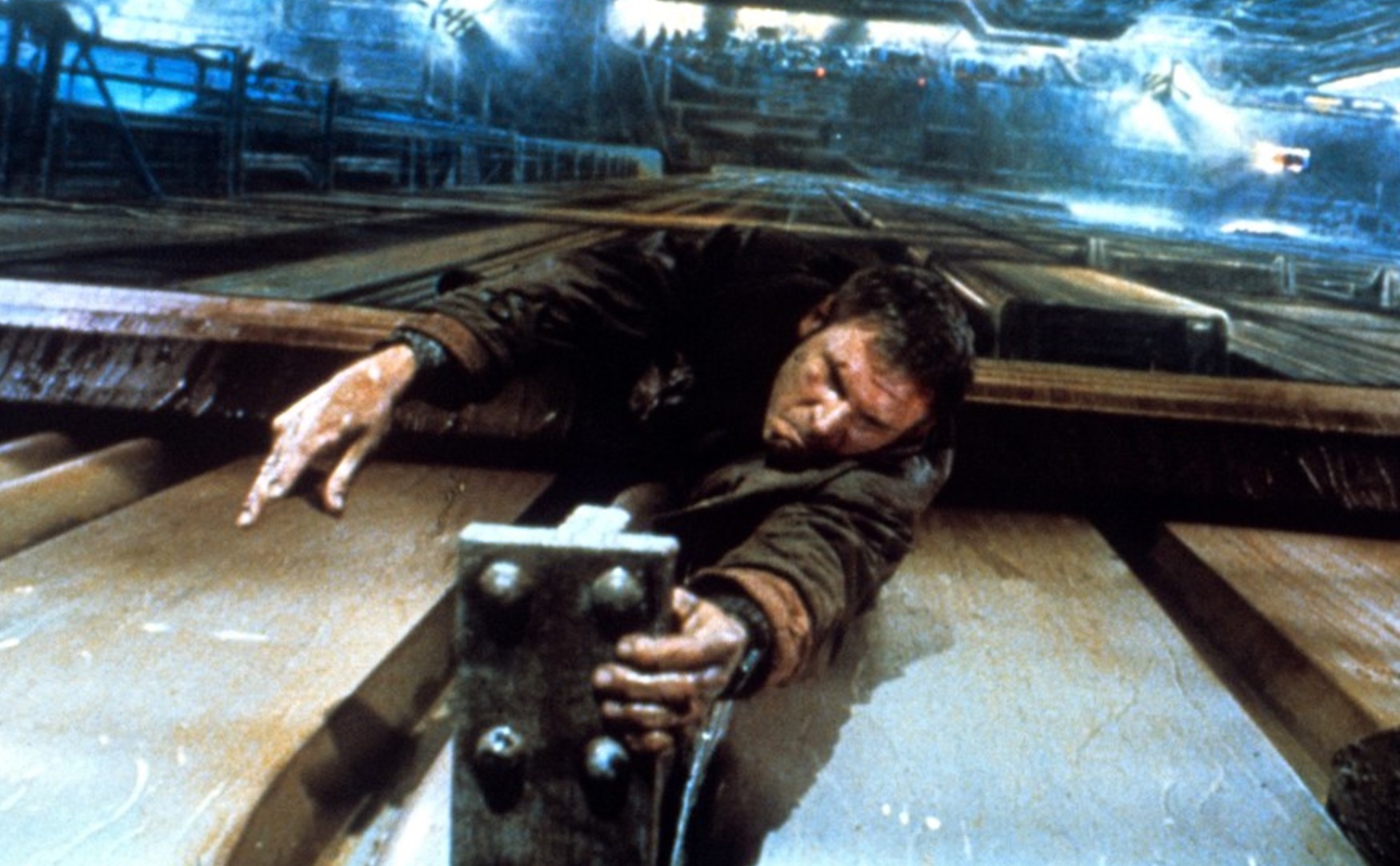
Beth: Watching Blade Runner decades after it came out is like looking at a canvas at a modern art museum that’s been painted entirely black. There’s something there, and it’s clearly well crafted, but is the value in the creation itself, how we interpret it, or the fact that we’re told to see it as something more than what it actually is?
After seeing it, I think it’s a combination of all three. But I’m sure plenty of people are going to tell me I’m wrong!
Germain: You’ve seen Blade Runner. Now — what do you think about the sequel?
Beth: I can tell you that I have no interest in seeing the sequel. Two hours of Blade Runner was one thing, I can get through that ok. But two hours and 40 minutes feels like a chore.
And for a movie that I felt was ok, but appreciated more for what it inspired than what it did? That doesn’t encourage me to see the story continue. Plus Ryan Gosling annoys me.
Charles: Hahahahahahahahahahahahahahaha. No. Won’t be seeing. I hope the sequel makes fans happy, though. That being said, I myself am not one of them.
Beth: Agreed, Charles. Just because I don’t want to see it doesn’t mean it doesn’t deserve to exist. It absolutely does, and fans deserve to see the story continue.
Charles: Totally. It’s just that I can think of so many other things I’d rather do. Which I don’t say out of contempt or anything, but that as best as I can tell about the sequel, it’s just Blade Runner redux with an older Deckard and a new Blade Runner who is not Deckard but is exactly like Deckard.
Which is to say: fans, you’re probably going to like this! Or passionately hate it.
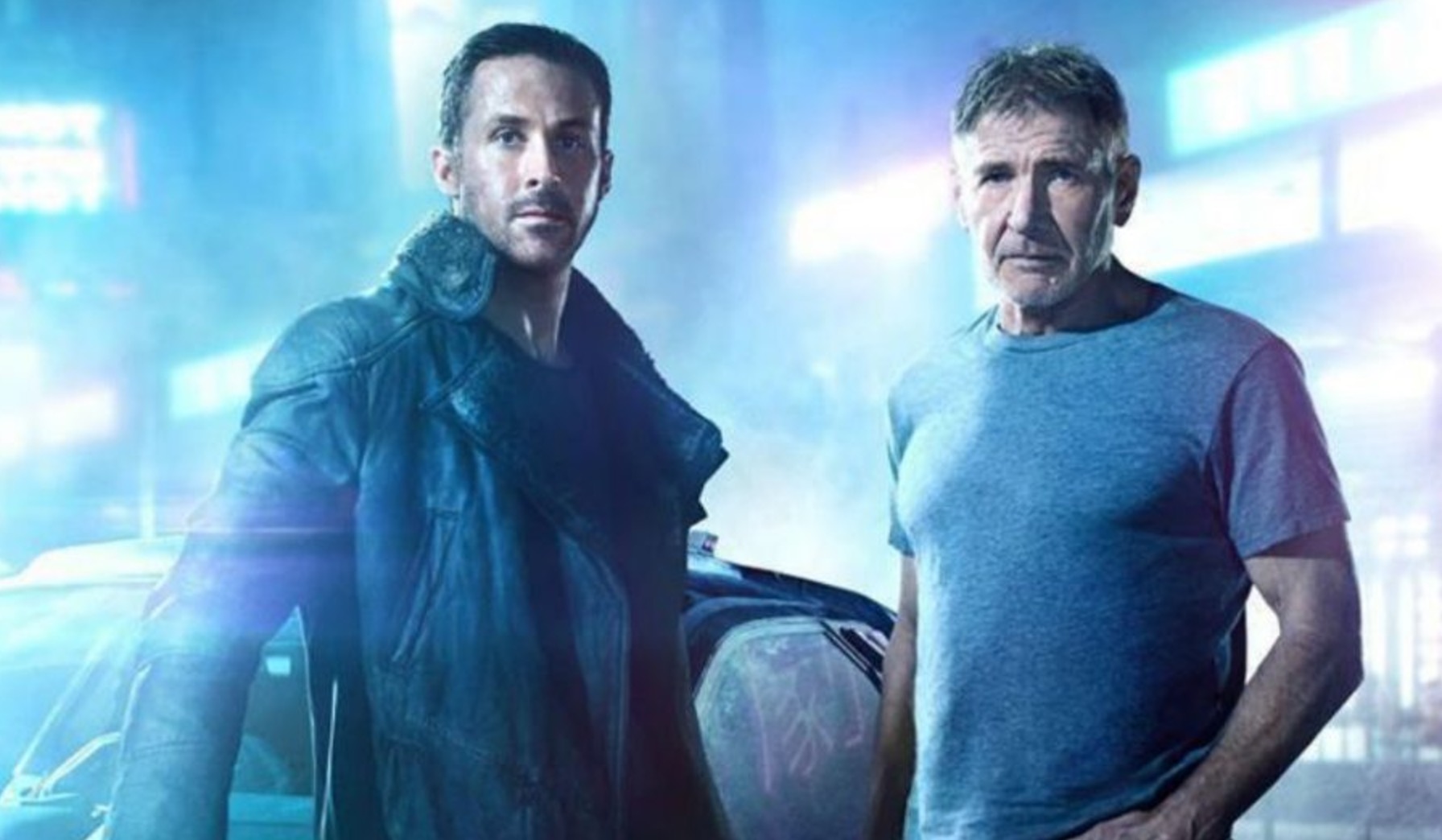
Beth: The thing that would excite me is a shorter runtime. OK, I’ll actually go a little further: I’d like if I knew whether the movie actually expanded into the outer worlds, so we saw how the Replicants live on a daily basis. I’d like to see something like the Institute synths from Fallout 4, where you see how they’re used and treated and can make a value judgment on whether or not you think it’s ok.
But I don’t have an indication of how involved Replicants are in the plot as background characters and environment building, at least not from the trailers that I saw.
I have a question for you, Charles. How accessible do you feel Blade Runner is?
Charles: In terms of?
Beth: General audiences. There have been so many rave reviews for the sequel, and I’m curious if that’s because film criticism as a whole has an overall favoritism for the movie that may not be shared by the general public.
Charles: That’s a very good question.
Just to bring this all full circle — we live in a world whose pop cultural landscape was profoundly shaped by Blade Runner. Even if you’ve never seen it, you have seen and experienced elements of it through other pieces of art. With that in mind, I think plenty of audiences will be able to understand Blade Runner 2: Electric Boogaloo, but it will be interesting to see if people like it.
Beth: Blade Runner is one of the most fascinating film experiences I’ve had in a while — because it feels like nostalgia, but it’s really not. There’s an appreciation for what the movie was in the context of its time, as well as how its influence has carried over into other works. As a movie in itself, I didn’t fall in love. But I’m very glad that I saw it, and would recommend anyone else do the same.
Charles: Y’all, I really didn’t care for this movie.
Beth: Are you glad you saw it, Charles? Or would you have been fine not?
Charles: Neutral. The world wouldn’t have stopped spinning had I not.
Beth: Spoken like a true Replicant.
